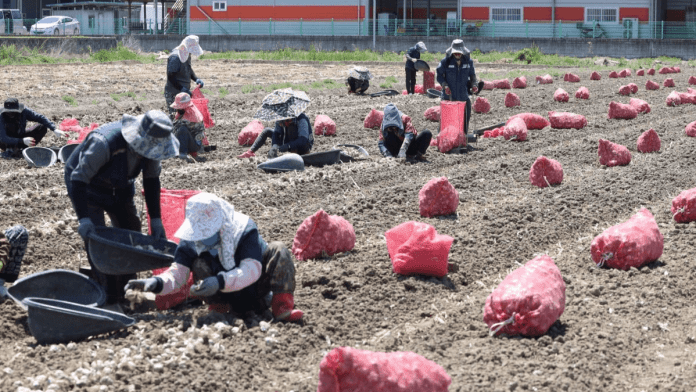News in Brief:
– Filipino farm workers in South Korea face exploitation through excessive fees, passport confiscation, and harsh working conditions under a migrant worker scheme promising high wages.
– Despite calls for reform from advocacy groups, both South Korean and Philippine governments have yet to implement effective measures to protect the rights and well-being of these vulnerable workers.
Recent findings reveal the harsh realities faced by Filipino farm workers participating in South Korea’s migrant worker scheme, showcasing a darker side to the promising opportunities touted by the program.
Initially enticed by the prospect of substantial earnings, Filipino workers journey to South Korea under the promise of lucrative wages. However, upon arrival, many find themselves trapped in exploitative conditions, with little resemblance to the assurances provided.
Numerous accounts detail the exploitation facilitated by brokers, who extract excessive fees and exert control over workers through confiscation of essential documents. This manipulation leaves workers powerless, unable to assert their rights or seek redress for grievances.
Ko Gikbo of the Joint Committee with Migrants in Korea describes the program as a contemporary form of slavery, shedding light on the alarming vulnerability of seasonal workers to human trafficking and forced labor practices.
Despite mounting evidence of abuse, both the South Korean and Philippine governments have failed to address the systemic issues plaguing the program. The absence of effective oversight mechanisms exacerbates the plight of affected workers, leaving them without recourse or protection.
Advocates and NGOs advocate for urgent policy reforms to safeguard the rights and well-being of migrant farm workers. Initiatives to establish fair wages, improve working conditions, and ensure access to medical care are imperative steps towards rectifying the systemic injustices endured by Filipino workers.
As the voices of exploited workers resonate, there is a collective responsibility to dismantle the structures perpetuating their suffering. By prioritizing human rights and dignity, stakeholders can work towards a more equitable future for all migrant laborers involved in agricultural ventures abroad.



